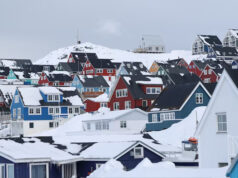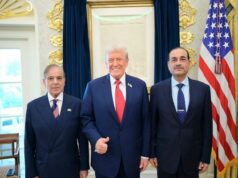
Sri Lankan Prime Minister Harini Amarasuriya on Saturday said bilateral ties between India and Sri Lanka are at their “best,” even as Colombo looks to position itself as a “complementary production base” for New Delhi in its push to become a global manufacturing hub.
“My visit to New Delhi comes at a time where India–Sri Lanka relations are at their best. Today, India is Sri Lanka’s largest trading partner, largest source of tourism and a significant investor. India is a crucial partner in our economic recovery and development,” Amarasuriya said at a civic reception hosted by the India Foundation in New Delhi.
Amarasuriya, who concluded her three-day maiden visit to India on Saturday, suggested that the 1998 India–Sri Lanka Free Trade Agreement could soon be upgraded to the long-pending Economic and Technology Cooperation Agreement (ETCA). The agreement aims to deepen trade, investment, and technology cooperation between the two countries, covering both goods and services.
Talks on ETCA, which began in 2016, were paused after 11 rounds of negotiations until they resumed in 2023, with the 12th round already held. “We are committed to deepening our economic partnership through negotiations on the Economic and Technology Cooperation Agreement, which we are hopeful of recommencing soon,” she said. “It will lead to our mutual benefit to explore how Sri Lanka can integrate into India’s manufacturing and service sector value chains.”
The Prime Minister proposed that Sri Lanka could complement India’s “Viksit Bharat” vision by serving as a production base for industries such as textiles, electronics, and food processing. She added that Colombo also sees “immense potential for cooperation” with India in the digital economy, renewable energy, healthcare, education, and innovation.
Highlighting her country’s maritime ambitions, Amarasuriya said Sri Lanka aims to develop into a maritime hub in the Indian Ocean region. “Sri Lanka can be a natural, cost-efficient hub for India’s export and import with the world using Sri Lanka’s deepwater and efficient ports, located in the east-west shipping lanes. Our ports can continue to be developed further as gateways to India’s trade,” she said.
On regional security, she stressed that “common challenges require collective response” and reiterated Sri Lanka’s commitment to a “free, open, and inclusive Indian Ocean region” based on mutual respect and international law.
Amarasuriya also acknowledged ongoing challenges in bilateral ties, notably the fishermen dispute. “Issues such as Indian fishermen fishing in Sri Lankan waters and engaging in harmful practices like bottom trawling are of concern to the fishermen in northern Sri Lanka,” she said, calling for “sensitive handling and sustainable solutions.”
The India–Sri Lanka fishermen conflict, rooted in destructive trawling practices in the Palk Bay, continues to affect livelihoods and marine ecosystems. Despite Sri Lanka’s 2017 ban on bottom trawling, violations persist, leading to arrests and diplomatic tensions. Both sides have agreed to work towards a “reasonable solution” acceptable to both parties.
- Nayanima Basuhttps://stratnewsglobal.com/author/nayanima-basu/
- Nayanima Basuhttps://stratnewsglobal.com/author/nayanima-basu/
- Nayanima Basuhttps://stratnewsglobal.com/author/nayanima-basu/
- Nayanima Basuhttps://stratnewsglobal.com/author/nayanima-basu/




